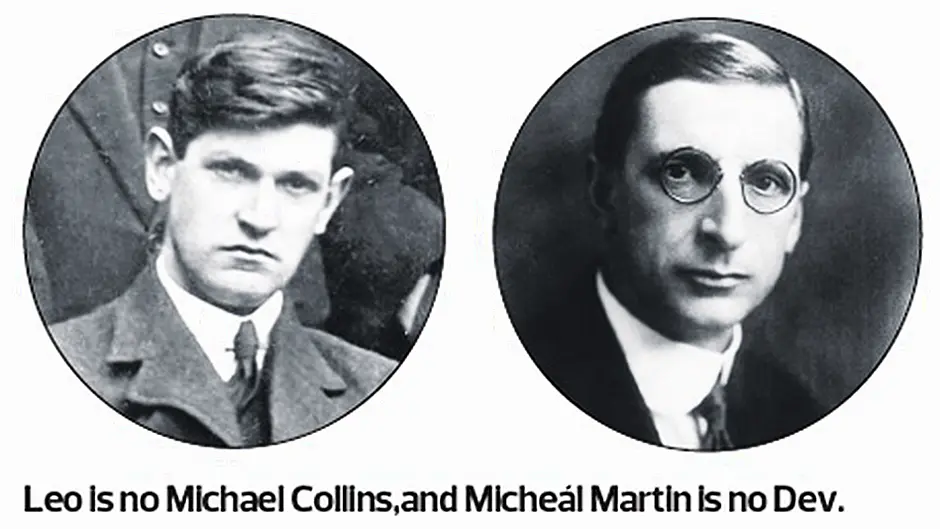MICHEÁL MARTIN ELECTED TAOISEACH
West Cork-based Dr Mervyn O’Driscoll takes a historian’s view on the newly-formed government
MICHEÁL Martin is not Eamon de Valera and neither is Leo Varadkar Michael Collins. Nor can we presume to know what de Valera and Collins would make of the current new government. Their decisions in the critical months of 1922 loomed large over modern Ireland, but times have changed.
Nearly a century has passed since the Civil War wracked Ireland and blighted West Cork and Kerry. The time is near when national commemorations will centre on the bloodshed and division wreaked by the Irish Civil War. It will be challenging, especially in West Cork. It is time to forgive and move forward. But is historical reconciliation the basis for good government?
The Irish Civil War overshadows the War of Independence. It violently and lastingly sundered the Irish body politic and the nationalist movement. The two-party or two-bloc party system has dominated the national mind since. But we are in uncharted territory now, with three medium-sized parties jockeying for power. Any government requires at least two to form a solid foundation.
We must place the Civil War in a broader frame, and not resurrect it to justify current choices. Different times. Both the ‘regulars’ and ‘irregulars’ were at core republicans and separatists – they sprang from the same republican (Sinn Féin) movement that fought British forces during the War of Independence. Both craved a sovereign Irish republic. But the Treaty did not grant that. It was symbolic submission to empire in the form of an oath of fidelity to the British Crown that eventually divided republicans.
Civil War politics blighted Ireland for two generations. Fine Gael and Fianna Fáil were two sides of the same coin, although the intense competition of the two-party system and long memories inflated differences. The details should not divert us. In effect, however, both parties lost their stranglehold over the electorate from 1987.
Celebrations about overcoming historical differences and civil war politics are misplaced in any of the hoo-hah surrounding the formation of current government. Of course, it is a watershed moment in Irish political history, but has reconciliation come years too late? The political landscape has shifted. Civil war politics is a distant memory. Sinn Féin’s recent surge compromises Fianna Fáil’s label as the republican party, but also claims the left-wing mantle. Sinn Féin’s approach is reminiscent of Eamon de Valera’s tactics after 1927 and into the 1930s.
Lanigan’s Ball will continue with three parties posturing and seeking stable partners in the tussles for power in future years, as one steps out and the other steps in again. The political arithmetic of government formation will throw up more surprises in the years ahead. The fragmented nature of the Irish party politics is unlikely to change soon ... the dance is only beginning, Mr Martin!
• Dr Mervyn O’Driscoll is Head of School at UCC’s School of History.








